Kraft Paper Tea Bags: Weaving Tradition into Tomorrow’s Sustainable Brew
In the serene world of tea, where heritage meets hyper-modernity, kraft paper tea bags are emerging as a symbol of eco-conscious evolution. Once a humble vessel for loose leaves, these unbleached, biodegradable bags are now at the forefront of a packaging revolution, inspiring innovations like compostable tea powder packing pouches that cater to matcha enthusiasts and eco-aware consumers alike. As the global tea market surges toward $81 billion by 2031, brands are steeped in a dual mission: preserving flavor and the planet.
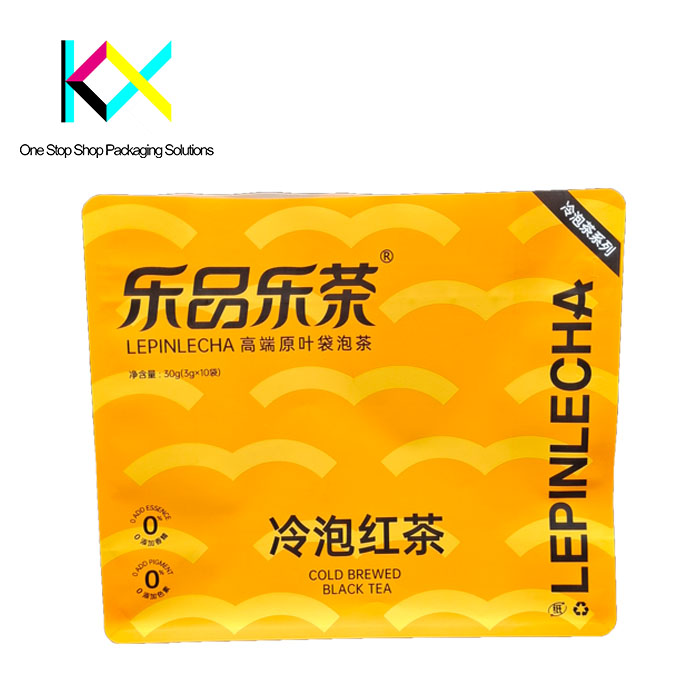
Material Alchemy: From Plastic to Plant-Based Integrity
The shift away from plastic tea bags has been swift and decisive. Kraft paper tea bags, crafted from unbleached wood pulp, offer a chlorine-free alternative that decomposes in weeks—unlike conventional nylon or PET bags that linger for centuries. Brands like Pukka Herbs and Traditional Medicinals now use these bags with plant-based PLA (polylactic acid) seals, ensuring heat resistance without synthetic additives. For powdered varieties, tea powder packing pouches made from kraft paper lined with algae-based films are gaining traction. Startups like Eco Tea infuse their matcha pouches with chitosan—a shellfish-derived antimicrobial coating—to prevent clumping in humid climates, marrying natural materials with cutting-edge functionality.
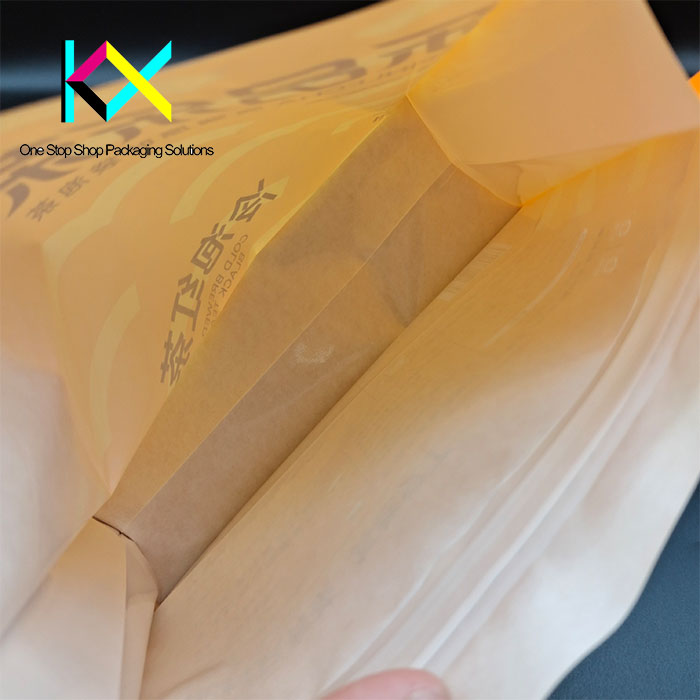
Design Innovation: Function Meets Aesthetic Ritual
The kraft paper tea bag is no longer a utilitarian afterthought. Brands like Yogi Tea emboss theirs with soy-based inks and minimalist mandala designs, turning each bag into a meditative experience. For tea powder packing pouches, the focus shifts to precision. Japanese brand Marukyu-Koyamaen employs stand-up kraft pouches with nitrogen-flushed interiors, preserving matcha’s vibrant hue and antioxidant potency. Resealable zippers, once reserved for snacks, now seal these pouches airtight, a feature adopted by U.S.-based matcha brand Encha to reduce waste in daily use.
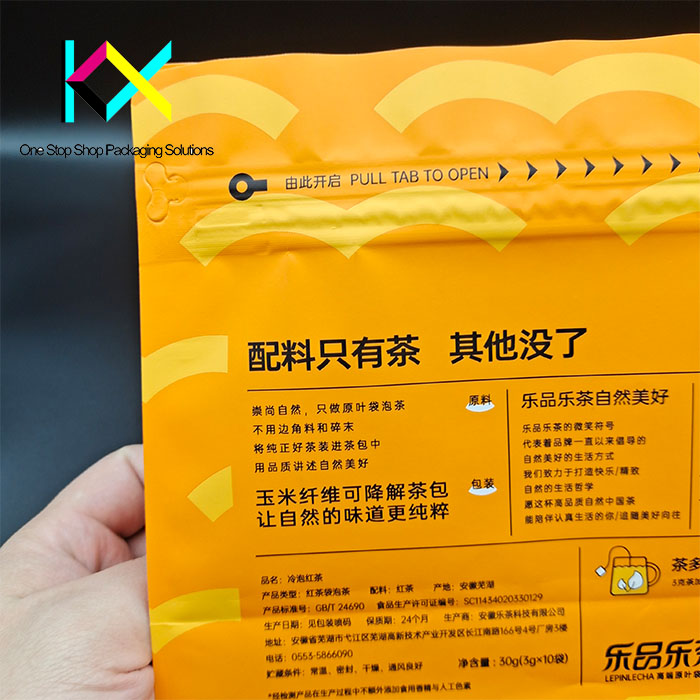
The Circularity Challenge: Recycling vs. Reality
Despite their green credentials, kraft paper tea bags face systemic hurdles. Many municipal composting facilities reject them due to PLA seals or staple adhesives, while tea powder packing pouches with mixed-material liners confuse recycling streams. Brands are tackling this through education and partnerships: Clipper Tea’s “Plant. Pack. Grow.” campaign teaches consumers to home-compost their kraft bags, while Numi Organic Tea collaborates with TerraCycle to recycle used tea powder packing pouches into garden tools.
Legislation is tightening the screws. The EU’s Single-Use Plastics Directive now mandates that 90% of tea packaging be recyclable by 2025, pushing brands like Teapigs to pioneer mono-material kraft pouches with dissolvable seams.
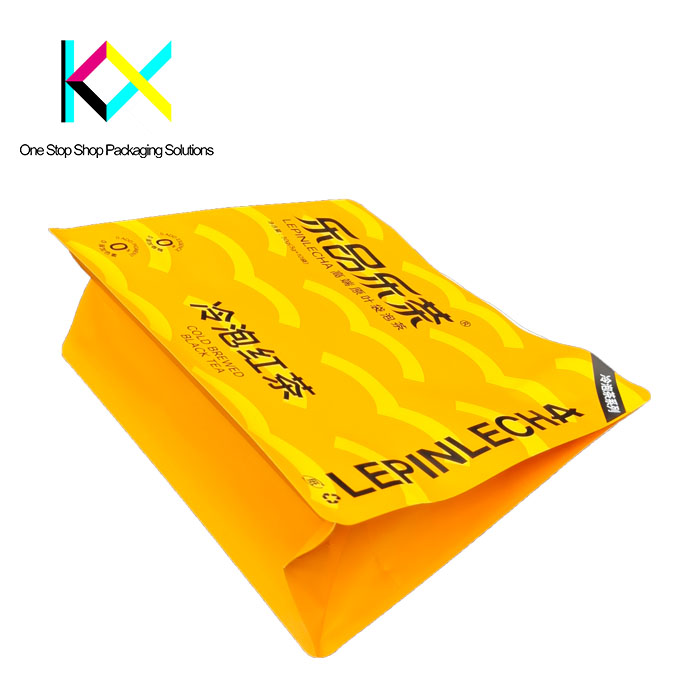
Smart Infusions: Bridging Tech and Tradition
Technology is quietly enhancing the tea ritual. Kraft paper tea bags embedded with NFC chips, like those from French brand Kusmi Tea, allow drinkers to scan and trace a bag’s journey from Sri Lankan estates to their cups. For tea powder packing pouches, temperature-sensitive inks signal freshness degradation—a trick borrowed from pharmaceutical packaging. Meanwhile, UK startup Teforia integrates QR codes on matcha pouches, linking to whisking tutorials and carbon footprint reports.
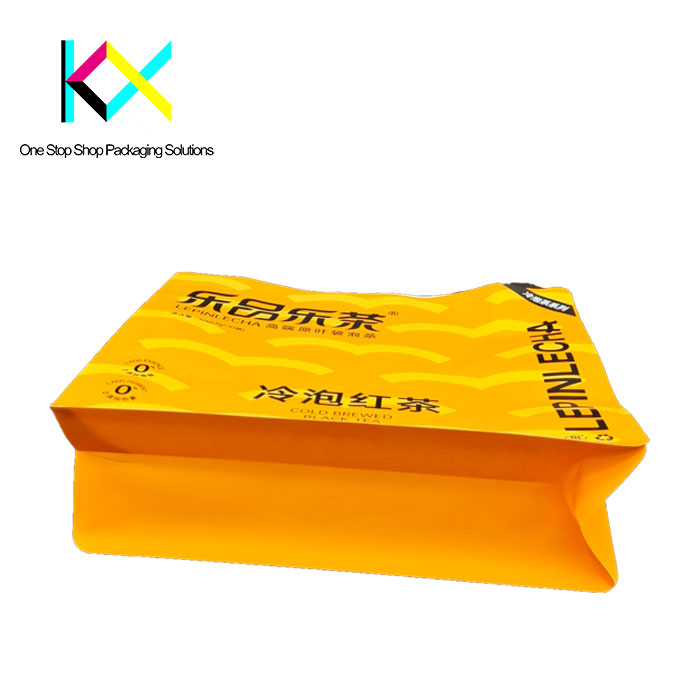
The Luxury Paradox: Eco-Chic Appeal
High-end brands are proving sustainability need not compromise luxury. Singapore’s TWG Tea wraps kraft paper tea bags in silk sachets, while Japanese brand Ippodo sells ceremonial matcha in gold-foiled tea powder packing pouches made from 100% recycled kraft. For the $1.5 billion tea gifting market, brands like JING Tea emboss kraft pouches with personalized calligraphy, transforming waste-conscious packaging into heirloom-worthy art.
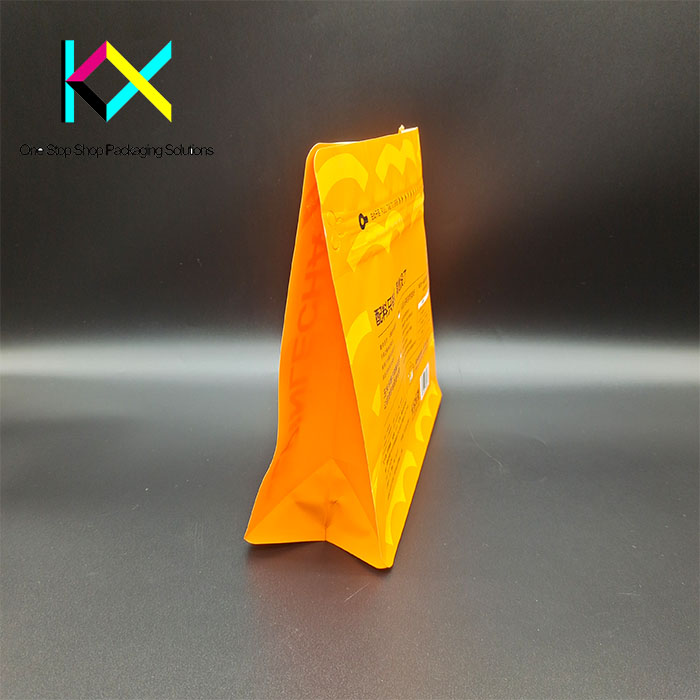
Future Steeps: Seeds, Blockchain, and Beyond
The next wave of innovation blurs the line between packaging and product. Australian brand The Tea Crew embeds wildflower seeds into kraft paper tea bag tags, urging consumers to plant used bags. Blockchain technology, adopted by Indian brand Teabox, tracks every step of a tea powder packing pouch’s lifecycle, appealing to the 68% of Gen Z buyers who prioritize ethical transparency.
Edible films loom on the horizon. Startups like Evoware are testing seaweed-coated tea powder packing pouches that dissolve in hot water, subtly enriching brews with marine minerals—an homage to Japan’s dashi traditions.
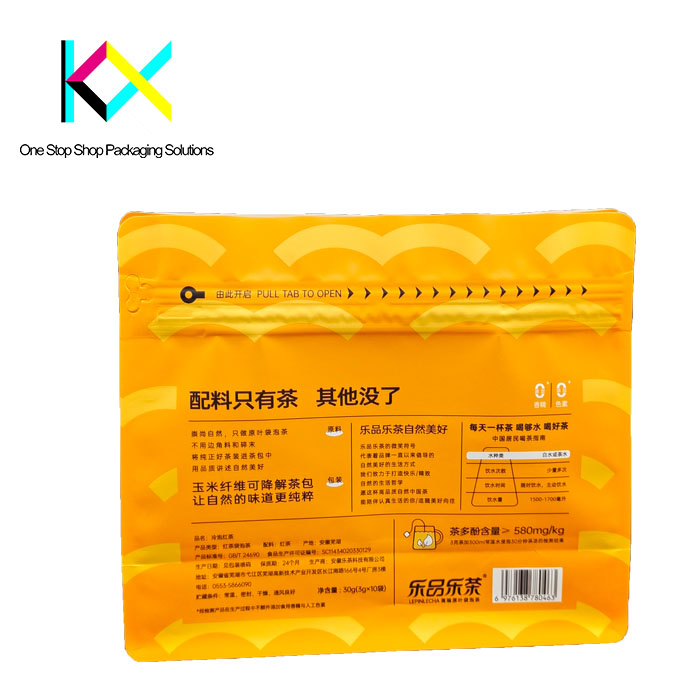
Conclusion: A Cup Brewed with Intention
The kraft paper tea bag and its powdered counterpart are more than packaging—they’re a pact between past and future. From compostable simplicity to blockchain-enabled transparency, these innovations steep the tea ritual in mindfulness, proving that every sip can honor both tradition and the planet.
For brands, the challenge is clear: Innovate with reverence. Because in the quiet unfurling of a kraft paper tea bag, there lies a world of possibility—one where sustainability is not just sipped, but savored.
You can visit our website to know more about our flexible packaging pouch:
